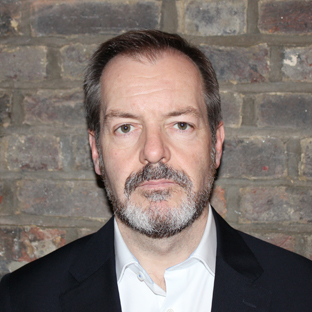The story of the election so far has been the rise of Clegg and the Liberal Democrats and the consequences this may have on the result. Change has become the central question – the choice being about who can manage this best and who personifies it the most. But change for what? It is striking that policy has received less attention in this than in any previous election.
The election has not yet resolved itself into a clear argument about alternative strategies for managing the big issues; the economy, the deficit and the future of our public services. Read the manifestos in detail, as I suspect few have done, and what emerges are large areas of agreement between the three main parties, especially about public services and how they need to change. But each party puts a different gloss on this.
It is striking that policy has received less attention in this than in any previous election
For Labour the central issue is the scale of future risk: economic, social, demographic and political. The message is that only Labour has the experience and fair values to guide Britain through these difficult times. From here it is only a short step to Gordon Brown’s dividing lines on what public service budgets would be protected.
The Conservatives focus not so much on future risk but on the state we are in. Their argument is that our public finances, economy and society are broken and that a fundamentally new approach to governing is needed. Their central idea is the Big Society, in which families, communities, and the state will need to work together to build a stronger society; exemplified in their plans for national community service for 16 year olds.
The Liberal Democrats have presented themselves as the change agents and the people who tell it as it is. For them the elephant in the room is the deficit and they seek to make a virtue out of plain speaking on this, saying that efficiency savings will never be enough to tackle the problem. They identify the need for hard choices about which spending to cut and offer, as examples of this, Trident and the Child Trust Fund.
Of course each party has detailed proposals on public service reform. Labour has proposed strengthening citizens rights to public services – including patient and citizen guarantees - to drive improvement from the bottom up. The issue of long-term care and Labour’s proposal to create a new National Care Service echo Brown’s message about future risk. Labour seeks to be our mutual friend with proposals for public service co-ops in housing, Sure Start and even primary care trusts.
The Conservatives have prioritised welfare reform, based on tougher conditionality and extending payment by results for welfare service providers. They have promoted their model for parent-led schools and for public service employee mutuals. They have also courted some controversy by sticking to their guns in advocating elected police commissioners. On health their policy has been ‘softly, softly’, as they continue with their strategy of seeking to neutralise what has been a traditional Labour positive.
The Liberal Democrats make fairness and decentralisation their overarching themes for public services. They promote an explicitly redistributive funding formula which targets funding at the poorest people, so that the money follows the poorest patients and pupils through the introduction of education and health premiums. They advocate strengthening local say through elected local health boards and police authorities and neighbourhood justice panels. In addition to their well publicised plans to simplify the tax system, they propose greater transparency and control over by giving people greater flexibility in accessing part of their pension before retirement. What the Liberal Democrats do not do is set out a framework for public service reform.
Each party appears to have more of a stance than a strategy
So far none of the three main parties has really managed to lodge with the public a clear sense of what their vision adds up to for public services. The Big Society is in some ways the most audacious idea, but it has not yet resonated as it might because, apart from volunteering, it it’s not yet clear where the beef is. Meanwhile Labour’s focus on future risk has had some effect, but at the same time seems clunky. The Lib Dems have scored on the deficit yet their prescription is less comprehensive.
Each party appears to have more of a stance than a strategy. Take localism. All are agreed that significant decentralisation is needed. The policies are plentiful from elected mayors, to localised planning and housing. What is lacking is a coherent theory. A genuine shift in power from the centre to localities would have to involve big changes in Whitehall and Westminster; a re-imagined, smaller and more strategic centre whose role would be to enable and empower innovation and delivery at local level. That could be a recipe for achieving big savings. The simple test for real devolution is to follow the money; if control over funding and revenue stays at the centre then so will power.
So the challenge for the main parties as we enter the final stage of of the election campaign will be to crystallise their respective positions into harder propositions, which offer voters some real choices for the future. This isn’t just necessary for winning, it is critical for governing. Whoever wins the election, and whatever formation emerges after May 6th, their job in tackling economic stagnation, rising demand pressures and growing debt levels will be made that much harder if they haven’t established a mandate for the tough decisions which will be necessary.
Ben Lucas is Director of 2020 Public Services Trust.
Related articles
-
Black History Month: Q&A with I. Stephanie Boyce
Deborah Ajia
The first Black president of the Law Society discusses how she overcame the odds to rise to the top of her profession, and is now helping to drive social change as an RSA Fellow.
-
Keep dancing!
Barbara Berkeley-Hill
Age should be no barrier when it comes to dance. Barbara Berkeley-Hill discusses how dancing can help older generations feel younger, happier and more connected.
-
Educators as curators in the age of AI
Alex Soulsby
With artificial intelligence able to support individualised learning, educators should act as curators of knowledge – cultivating creativity, critical thinking and other competencies to help foster deeper and more meaningful connections with each student.




Join the discussion
Comments
Please login to post a comment or reply
Don't have an account? Click here to register.
It's a tough job for anyone getting into power! Good luck...